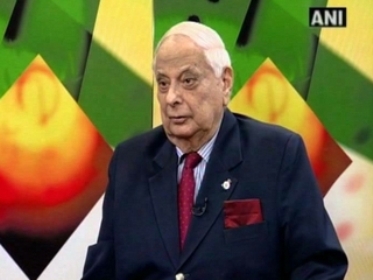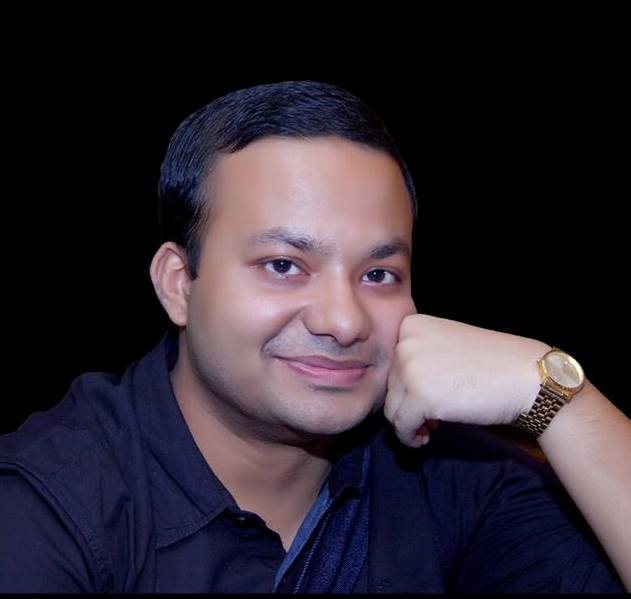Remembering ‘Jake’: A Tribute to Lt Gen J.F.R Jacob
- In Military & Strategic Affairs
- 08:02 PM, Jan 16, 2016
- Ranabir Bhattacharyya
The partition and subsequent Indian independence didn't bring peace in the Indian sub continent. Right from the Kashmir showdown with Pakistan in 1948, followed by the ill-timed 1962 Indo-China war and yet again the 1965 Indo-Pak war worsened the situation in the sub continental domain. Hence the 1971 Bangladesh Liberation war was a decisive one, giving birth to a new nation, independent from Pakistan. Incidentally the Indian army played a huge role in the 1971 Bangladesh Liberation war, which decisively defeated the Pakistan Army and 90,000 Pakistani soldiers had no option but to surrender to the Indian forces. Amongst those brave Indian officers who made that feat exceedingly commendable, was the head of the Indian Army’s Eastern Command, Lt Gen JFR Jacob. He was a true champion and his death on 13th January ended an era. After his illustrious career at the helm of affairs in the Indian army, General Jacob, as he is famously remembered, served as the governor of Indian states of Goa and Punjab.
JFR Jacob was born in a conservative Jewish family in Kolkata in 1923. His family migrated from Baghdad in early 18th century, He was sent to Victoria School, a boarding school in Kurseong near Darjeeling. From his early childhood days, he was well aware of his Jewish roots. In spite of his father's inhibitions, he enlisted himself in the British Indian army in 1942, enraged by the reports of Holocaust of European Jews. Throughout his life, he remained extremely proud of his Jewish lineage.
In the year 1942, he graduated from Officer's Training School Mhow. As a part of British army, his first posting was in northern Iraq to safeguard the oil fields of Kirkuk from probably German invasion. His training with Glubb Pasha's Arab Legion was significant as far his on field agility was concerned. Next he was transferred to North Africa to fight against the Afrika Korps. After that, Jacob's unit was sent to the Burmese front to face the Japanese aggression. Once the Japanese were defeated, he was transferred to Sumatra with further duties. JFR Jacob further graduated from artillery schools in UK and USA after World War II. Thereafter he came back and joined Indian army after 1947. With his past experience and qualification, he was promoted to Brigadier in 1963. In the 1965 Indo-Pak war, JFR Jacob led the infantry division in Rajasthan. His army manual on desert warfare crafted at that phase is still a classic. JFR Jacob was promoted within his ranks in the next few years. In 1967 he was promoted to Major General followed by his appointment as Chief of Staff Eastern Command in 1969 by General Sam Manekshaw.
'Jake, I am relying on you'- General Manekshaw relied on Lt Gen Jacob for his fearless ability on the war front. The 1971 Bangladesh Liberation war or rather the Indo-Pak war was tricky from various aspects. Firstly, USA was inclined towards Pakistan and the Soviets backed India with important inputs. Secondly, India was not keen on fueling the unrest in East Pakistan; instead the target was to help the Mukti Bahini under Sheikh Mujibur Rahman in attaining independence. The probable situation in case of Chinese intervention and ensuring peace in Bhutan were also on the agenda. The last thing that India did not want was, to aggravate the condition of the Bengali refugees who were coming across the eastern borders of Assam, West Bengal. Thus Lt. Gen Jacob was a pivotal strategist in Indira Gandhi's plan of defeating Pakistan on the battlefield. In the history of modern war fare, it was for the first time a ceasefire was converted into public surrender and the whole episode took four hours.
Although Indian Army Officers were reluctant in opting for an aggressive approach, Lt General Jacob rightly insisted on conquering Dhaka, the geographical centre of East Pakistan. This was something very different from the earlier plan to get hold of Chittagong and Khulna provinces. JFR Jacob took immense pride in his pro active role in Pakistan's surrender to India. In one of his interviews he recounted," A Pakistani brigadier met me at the airfield to guide me to Niazi. A long argument took place with the Mukti Bahini, until I said, "Look, your new government is coming in tomorrow, and Niazi wants to surrender, for God's sake let us go!" Finally they let us go. I arrived at Niazi's headquarters, where I had the draft surrender document read out to him. This is an unconditional surrender, he said. "You have only come here to discuss the ceasefire and the withdrawal of the Pakistani army.""General," I replied, "this is not unconditional, I have worked on this for some time. I had put in it that we would protect ethnic minorities that we would ensure the safety of them and their families, that they would be treated with dignity as officers and men according to the Geneva Convention. So it is not unconditional."
In 2010, when he was asked whether Indian army can be used to tackle Maoist problem, the veteran general said that way back in the late 60's, Indira Gandhi had sent the army to crush the Naxal uprising in West Bengal in Siddhartha Shankar Ray era. He further added, "In 1969 in the month of October, General Manekshaw and Secretary Govind Narain came to Calcutta to see me. We had a meeting and Manekshaw told me that the government had decided that the Army would be used to break the Naxals and it is the order of Mrs Gandhi. She had directed that the Army be used to break the Naxals."I told Manekshaw that I need more troops. We had 20th Division in the Naxal areas but nothing south of the Ganga. He said, 'How much troops do you need?' I said I at least need two divisions. So he said Jake I will be good to you. I will not only give you two more divisions but I will give you 50 para-brigade as well. I said give me something in writing. He said nothing in writing. Then Govind Narain turned up and said no publicity and no records. There was no disturbed area act enforced, no AFSPA enforced. We just operated within the law. I would presume you would call it aid of civil power since we had no protection."
His proactive assistance and contacts did help India to engage the Israelis during the NDA regime under Atal Bihari Vajpayee. General Jacob also helped in strengthening the diplomatic ties between India and Israel. He had difference of opinion with Indira Gandhi and Congress Party. His book titled “Surrender at Dacca: Birth of a Nation” is considered an informative memoir to 1971 Bangladesh Liberation war. He joined BJP in the year 1991. In 2014, JFR Jacob presented a copy of his autobiography titled “An Odyssey in War and Peace: An Autobiography Lt Gen. J.F.R. Jacob" to Prime Minister Narendra Modi. With his passing away, India has not only lost a jewel but also a legend in the field of national security.







Comments